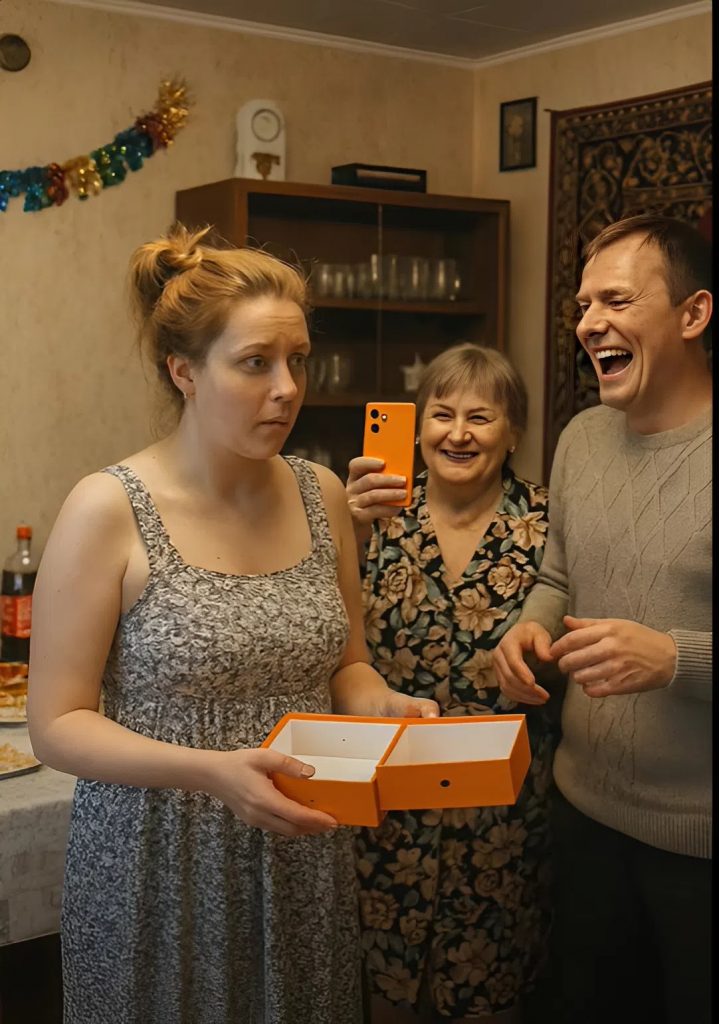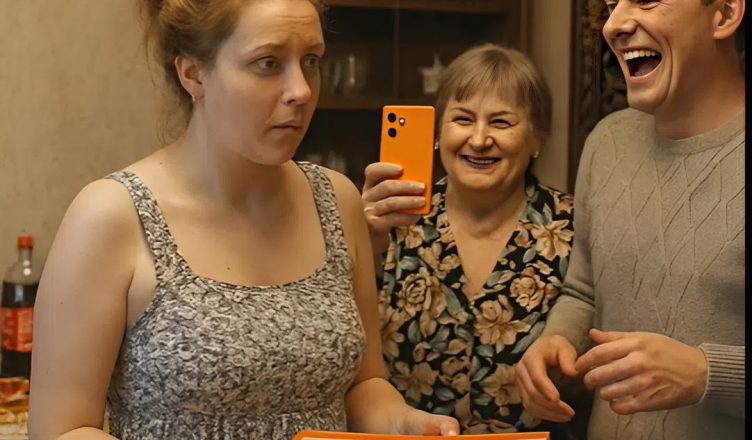A milestone. A moment I had planned down to the smallest detail. The house was beautifully decorated, the table full of food and laughter, friends and family gathered around. Music played, glasses clinked, and for a while, everything felt perfect.
Until he handed me my gift.
I’d secretly hoped my husband would give me a new phone. My old one had recently drowned in the sink — thanks to our little daughter’s curiosity. So when he walked toward me with that familiar orange box, a wide grin across his face, my heart skipped a beat.
“This one’s special,” he said, struggling to hold back his laughter.
With trembling hands, I lifted the lid — and froze.
The box was empty. Completely empty.
No phone. No charger. Nothing.
And then he burst out laughing. My mother-in-law laughed too — she was filming the whole thing on her phone. Her brand-new iPhone, by the way — the one that was supposed to be mine.
“Come on, don’t look like that,” he said between fits of laughter. “It’s just a joke!”
But no one else was laughing.
The music had stopped, the room was silent, and I could feel a lump forming in my throat. I forced a smile, thanked him for his “creative” gift, and pretended it was fine. Inside, though, I was burning.
When everyone finally left, and the house went quiet, I sat there staring at that empty box.
And I made a decision.
I wouldn’t scream. I wouldn’t cry.
I would make him understand — not with anger, but with precision.
The next few days, I acted as if nothing had happened. Sweet, calm, forgiving. He thought it was over, that I’d taken the joke “like a good sport.” My mother-in-law even sent the video to relatives — “Look how funny she looks!”
That video became my weapon.

I collected every clip, every message, every photo — and made a short film. No insults, no shouting. Just truth.
It started with laughter. Then my face — frozen, humiliated.
And at the end, one line appeared on the screen:
“This was my 40th birthday.”
A week later, I told everyone I was organizing a “small follow-up celebration.” My husband was thrilled — probably hoping for another round of entertainment.
When all the guests arrived, I turned off the lights and started the video.
At first, there were smiles. Then silence.
They watched themselves — laughing, pointing, enjoying my humiliation.
No music. No excuses. Just faces.
When the video ended, I stood up and spoke calmly:
“This is who you were that night. You laughed at me, not with me. You turned my celebration into a spectacle.”
No one dared to move.
My husband’s smile had vanished. My mother-in-law lowered her phone.
I took a breath and said quietly:
“Love is not laughter at someone’s pain. Respect is not optional. I deserve both.”
Then I took my bag and left. No tears. No shouting. Just silence.
That night, for the first time in years, I slept peacefully.
In the days that followed, he tried to apologize — flowers, calls, promises. But I didn’t need apologies anymore. Something inside me had shifted. I no longer wanted to be someone’s joke, someone’s story to tell at parties.
The empty box is still with me.
Not as a symbol of pain, but as a reminder.
A reminder that sometimes the smallest act of cruelty can reveal the deepest truth — who truly values you, and who only pretends.
And him? He learned his lesson the hard way.
Because some jokes don’t make people laugh — they break something that never heals.
And sometimes, the silence after laughter speaks louder than any scream ever could.
